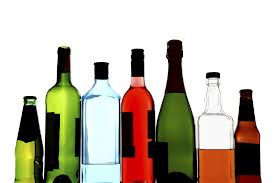Published Summer 2013
Americans, generally, do not drink as much tea as the rest of world. This may have something to do with a certain party they had in Boston a while back. That being the case, you might be surprised to learn that tea is second only to water in worldwide beverage consumption. In fact, some estimates place tea consumption in the billions of cups daily. That’s a lot of tea. However, with recent health benefits being ascribed to tea, its popularity in this country is definitely on the rise. In this article we will explore the world of tea and what questions there are vis-à-vis kashrus and halacha. First, a little background is in order.

The Kashrus of Tea – With No Strings Attached!

Kashrus in High Spirits
Winter 2005
Jewish life-cycle events, be it a bris, a bar mitzvah, or a wedding, are special occasions that we anticipate eagerly and celebrate with joy. At any simcha, we fill our cups with wine, raise our glasses of schnapps, and with great fervor pronounce a resounding “L’chaim!” in honor of the blessed event. This custom of melding alcohol with simcha has been a Jewish practice from time immemorial. The cup that is raised today, however, bears very little resemblance to that of yesteryear.

Oven Kashrus: For Shabbos Use
To download and print a handy UPDATED summary of these halachos, click here.
Winter 2005
Cookin’ just ain’t what it used to be. Technological advances have taken the old stovetop and oven and upgraded them to be safer, more efficient, and smart for today’s lifestyle. They are also far more complicated. With these transformations, the observant Jew is faced with challenges that did not confront him in the past.
To understand how these changes affect the halachic use of the stovetop on Shabbos and Yom Tov, it is worthwhile to review some laws and concepts as they relate to cooking on Shabbos and Yom Tov.
DEFINITION OF MELACHA
Cooking on Shabbos is a Torah prohibition derived from the constructive acts performed in erecting the mishkan. This forbidden act is known as a melacha. There are 39 categories of prohibited acts.
MELACHA OF COOKING
The prohibition of cooking on Shabbos is defined as the act of using […]

A Kashrus Guide to Medications, Vitamins, and Nutritional Supplements
Click here to view the STAR-K Medicine List
Global sales of pharmaceutical products are expected to reach 500 billion dollars annually.1 It is therefore no wonder that the interest in kosher certification and approval for these products has also skyrocketed. Ideally, one should purchase these products with kosher certification. However, this is not always practical. It is for this reason that one of the most frequently asked questions on the Star-K hotline relates to the kosher status of these remedies. In an effort to clarify the numerous issues regarding these popular products, the Star-K has prepared the following halachic guidelines based on the psak of Rabbi Moshe Heinemann, shlita, Rabbinic Administrator of Star-K Kosher Certification.2

 STAR-D
STAR-D STAR-S
STAR-S